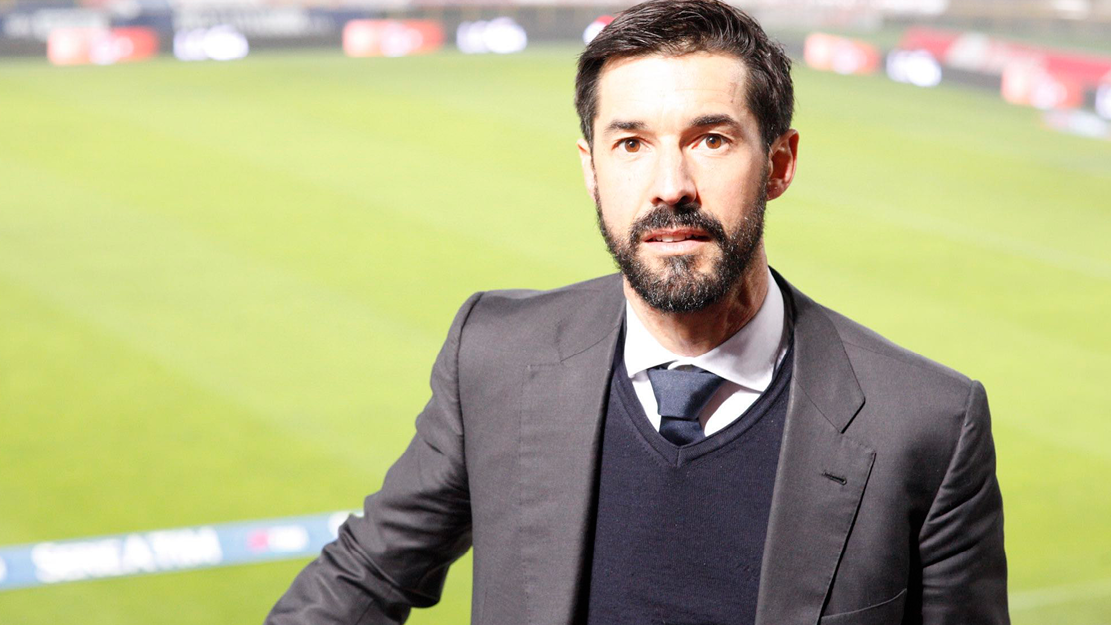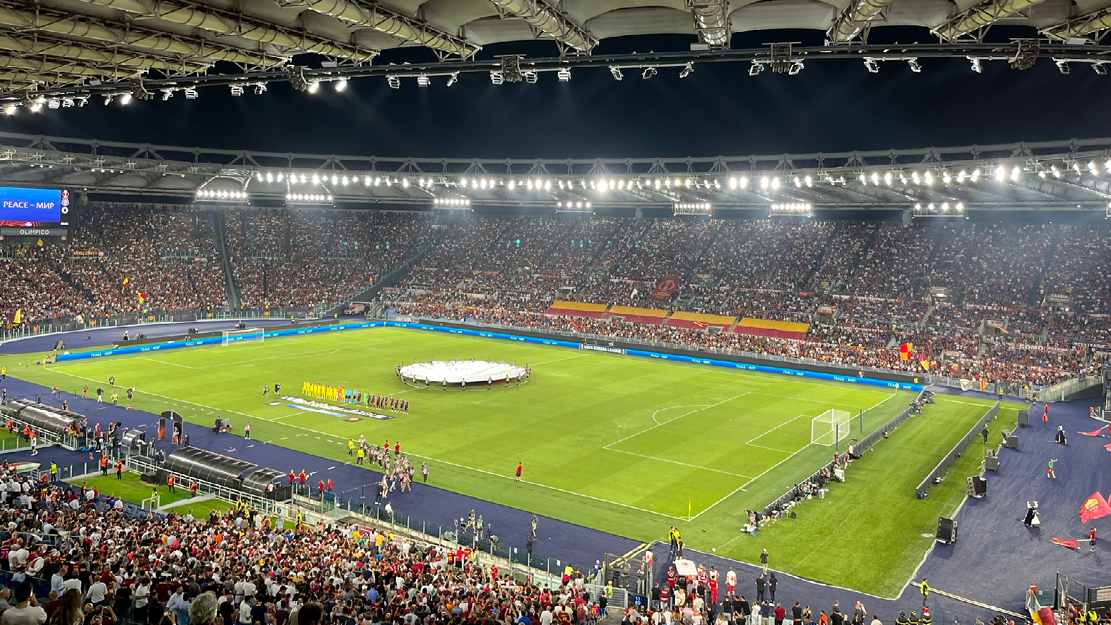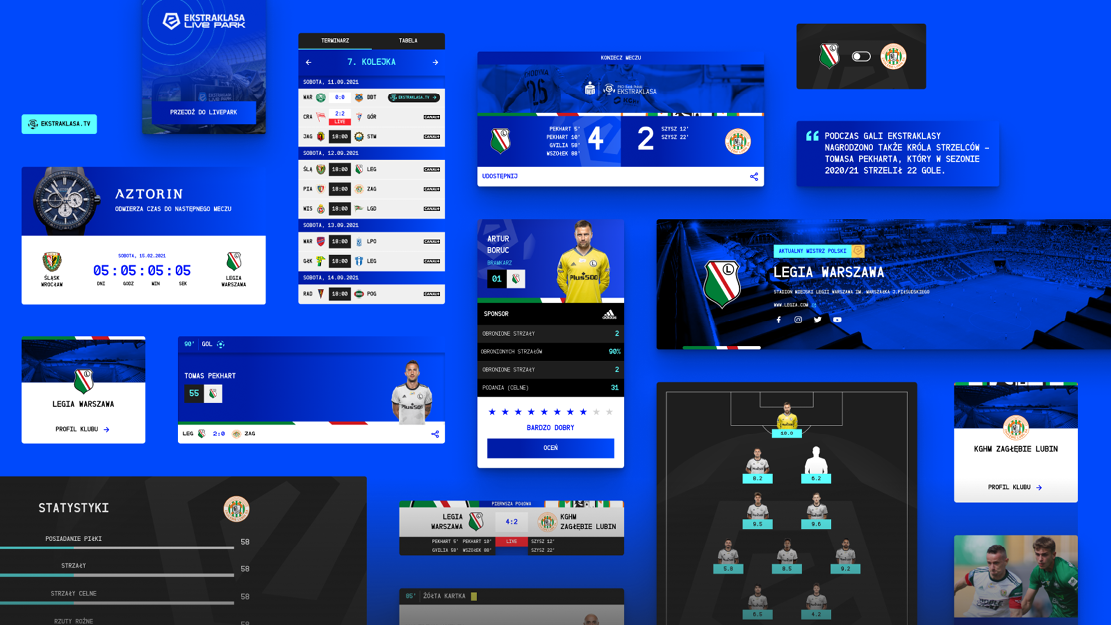In July 2019 we did our last interview. A lot has changed since then with the Covid pandemic hitting the global football business hard. How is the situation in Italy now?
The situation is pretty similar to Germany for example. Many leisure time activities are not possible, restaurants and bars are closed and there is a curfew at 10 PM. Luckily the numbers decrease. At the moment the plans for Christmas are discussed to reduce social contacts as much as possible. In the end everyone hopes for a vaccine to be available soon.
And how is the situation at FC Bologna right now?
The situation here is like at all Italian and most European clubs – no fans are allowed in the stadium. For the first two matchdays it was possible to open the hospitality area, but that changes then again. In the past we had 50 to 60 events in the stadium beside our games, that has stopped as well. Before Corona we also had increasing numbers of people visiting the stadium, the museum and the fanshop. That is a huge revenue loss of course. We hope to be able to open the stadium again later this season, that’s what we are working on strongly, also together with other clubs. We want to develop a credible concept for the re-opening.
The situation obviously has a strong impact on our revenues, especially when it comes to ticketing and corporate sales but also sponsorships where rights are included that are bond to the tickets. Also the food and beverage business and merchandising is impacted hugely.
How dependent on your owner are you in that situation?
We are dependent on our owner – luckily, we have an owner with a very stable business in Canada and South America who sees his investment as a long-term investment. He is aware that he needs to invest in the club to reach the sporting goals and to make sure the club is able to finance itself in the future, which is a clear goal. Of course the Covid pandemic led to a much higher loss than expected – with 40 million. That’s why we are more than ever dependent on our owner who compensates the loss.
When we talked the last time, you said “In the next years it will be important to find a better balance and catch up by developing better ticketing and sponsoring strategies and increase the revenue in these sectors in order to minimize the dependence on TV revenues.” Did this change and isn’t it lucky at the moment to have less a strong dependence on ticketing and matchday revenue?
The strategy stays the same of course, we still want to grow in sponsoring and ticketing. We have been on track last year to reach this goal and to grow in both areas. Unfortunately, Covid hit us in March and forced us to close the stadium for the fans for the last six games of the last season. This caused a decrease in ticketing sales of 15%. In sponsoring we could at least reach the level of the year before. This means we are still strongly dependent on the TV revenues. That can be a small advantage in these days compared to others who are more dependent on matchday revenues. Still, the strategy stays the same, to become more independent from TV revenue and I’m sure that this is possible when the pandemic is over.
Basically, how did Bologna get through this pandemic until today?
It is for us, like for every club, a difficult situation. We try to keep the financial situation as stable as possible and to offer our partners new, especially digital, rights as compensation for those which are not available at the moment. Of course, it is not possible to compensate the losses from ticketing, we can only wait for the stadium to re-open again. Also we need to reduce costs, for example when negotiating with players as we are discussion pay cuts with them.
Were you forced to cancel or at least postpone projects and developments? Or were you maybe even able to accelerate some developments, for example in digitisation?
Our strategy didn’t change in this regard. We already knew that we need to focus on digital developments. These developments, the digitisation of the whole club, is of course accelerated by the pandemic. For example, in the areas of social media or data management where we work with Salesforce. We try to gather more data from our fans and also monetize it or make it available to our sponsors. That is a topic than gains increased importance, especially in this situation where they need to make business and we need to offer them new rights as a compensation.
Do you think the football business will change based on the learnings of this crisis?
Covid shows that the world is turning. The digital transformation is accelerated by the Covid pandemic. The consumption changes, e-commerce is increasing what will impact our business as well. Also we need to take care that the society is not separating from football and that we don’t lose fans. That’s why it is utterly important right now to stay in touch with our fans and to focus on fan engagement. To sum it up, the Covid-pandemic accelerates the digitisation in football, we need to be aware of that and position ourselves accordingly.
Finally, Serie A accepted to sell a 10% stake of their just founded marketing subsidiary to a group of three investment funds. What does that mean for the Italian football and for clubs like FC Bologna?
Italian football is facing a very challenging but also very exciting period with many new developments. For example, the investment of a fund into a newly founded media company. This brings a lot of advantages for the Italian football with the financial aspect – with a supposed investment sum of 1.6 billion Euro for a 10% stake of this media company – as one of them. Beside that this will create a company that is led like a company and is not focusing on the goals of each single club director but on the product Serie A with a highly professional management team that will also get a certain autonomy in making decisions. And it brings the advantage to work with a partner – CVC is experienced in Formula One and Rugby – with a great international network and know-how and knows how to run such a business.
I personally am sure that the Italian football has huge potential with so many great brands – like Juventus, Inter and AC Milan, Napoli, Lazio and AS Roma – that are known world-wide. Also, because that’s are well-known cities with often a very positive image. With the enthusiasm of the fans and the huge potential of the stadiums. I’m convinced, that Serie A will catch up with the other big leagues in the next years. We need to be aware that this is not an option but a necessity. Some clubs already have new or modernized stadiums, but many don’t. Several clubs will get a new stadium in the future what will lead to an increase in revenues and finally the Serie A will close the gap to the other leagues






